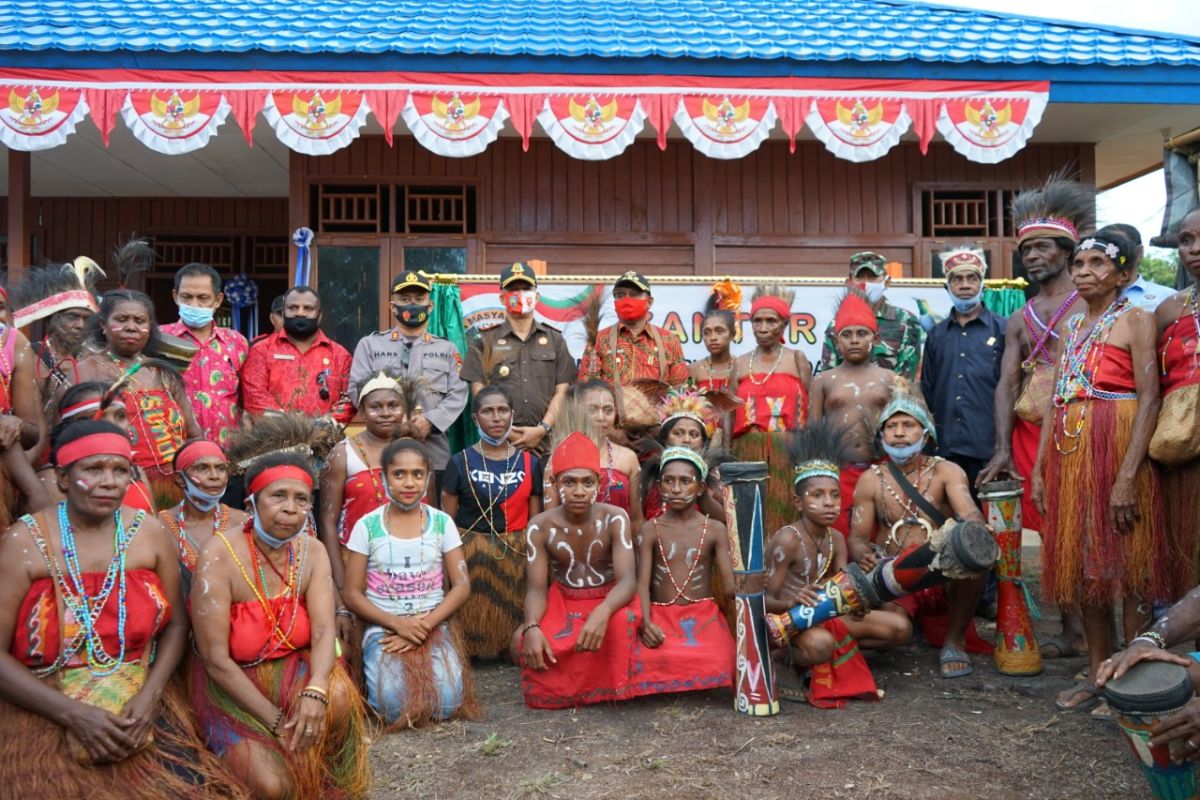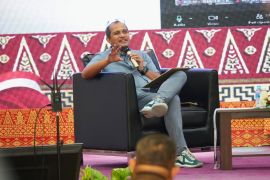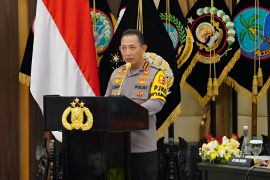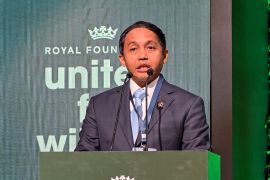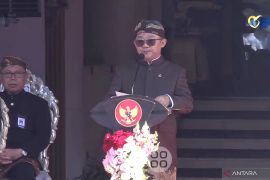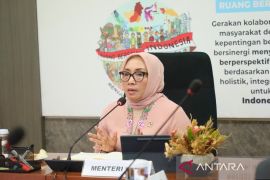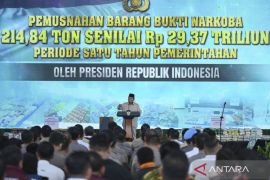The debate over the allotment of special autonomy funds, which, according to Papua's special autonomy law that President Megawati Soekarnoputri's administration had passed in 2001 is valid for two decades, has split the society, with some arguing against and some for maintaining the status quo.
As the transfer of funds will end in 2021, the House of Representatives has included the deliberation on Papua's special autonomy status on this year's National Legislation Program (Prolegnas) priority list.
Discussions over whether to continue or discontinue the special autonomy funds, stipulated in the law that guarantees Papuans the right to manage their own region politically, economically, and culturally, are taking place at elite as well as grassroots levels.
For instance, several representatives of native Papuan communities in Wamena, the capital of Jayawijaya district, debated the matter on Friday (October 16, 2020).
During the discussion, members of the Yali Hubula tribal community from the district asserted that the special autonomy implemented over a span of two decades has failed to bring prosperity to Papuans.
Highlighting this reality, head of the Committee for the Yali Hubula Tribal Community, Simon Surabut, told participants at the meeting that the Papuan People's Assembly (MRP) and the Papua province's legislative body should be transparent in deciding on the matter.
During the 20-year-long implementation of special autonomy in Papua, prosperity has remained a distant dream for all components of Papuan communities. On the contrary, various problems have surfaced, including the serious damage to natural resources, Surabut noted.
Seconding Surabut's view, Kiname Yikwa, a local church leader, said the real benefits of the vast amounts of special autonomy funds disbursed by the central government to Papua province have failed to reach all members of communities.
Consequently, disappointment is rife over special autonomy, despite the huge fund disbursal, Yikwa pointed out.
This dissatisfaction was echoed by Dolina Yogobi, a local feminist, who claimed that several Papuan women had failed to derive real benefits from the special autonomy funds, so they disapproved of their continuation in future.
On September 23, 2020, several youths also staged a rally in Timika, the capital of Mimika district, demanding the discontinuation of the special autonomy status granted to Papua and West Papua provinces.
Meanwhile, arguing in favor of special autonomy, a Papuan youth figure has urged people to support its continuation to guarantee sustainable development in all sectors of life in both provinces.
In conversation with ANTARA in Jayapura, the capital of Papua province, on August 11, 2020, Tanus Komba said rejecting the continuation of the law on special autonomy (Otsus), which was passed in 2001, is not a solution.
Komba called for deliberations on revising the special autonomy law instead of rejecting it, given its vital role in driving regional development in public sectors, such as health, education, and infrastructure.
The Papuan youth figure asserted that the special autonomy status granted by the central government to Papuans reflects Indonesia's concern for its people.
“We must be proud of it since only Papua and Aceh have been granted this privilege. Hence, we must support it,” Komba averred.
Though there are differences in the perspectives of the Papuan communities on the issue, Papua and West Papua remain an integral part of Indonesia.
Therefore, as mandated by the 1945 State Constitution, the central and regional administrations must work to create a just and prosperous society in the two provinces.
As part of efforts to achieve this, the central government has launched a 4,300-kilometer trans-Papua road project, stretching from Sorong city in West Papua to Merauke in Papua, to connect isolated areas in these easternmost Indonesian provinces.
Constructing the Trans-Papua road project is undoubtedly not an easy task owing to the provinces' geographical conditions and security threats posed by armed Papuan groups operating in some areas.
Indeed, ensuring social justice and prosperity of all Indonesians, including in Papua and West Papua, is an ongoing mission that will need time to accomplish.
Among the challenges the central and regional governments in Papua and West Papua must deal with is the social demographic condition of native Papuans who have been caught in the crosshairs of armed violence over the past years.
To highlight the social demographic conditions that have affected development efforts in the provinces, the Center for Demographic Research under the Indonesian Institute of Sciences (LIPI) recently launched three books.
The new books contain the results of social demographic studies conducted in the districts of Sorong and Tambrauw, West Papua province, in 2019.
The three books launched are Orang Asli Papua: Kondisi Sosial Demografi dan Perubahannya (Native Papuans: Social Demographic Condition and Its Changes), Pendidikan Sebagai Jalan Terang: Membangun Pendidikan yang Responsif terhadap Kondisi Geografis, Demografi, Sosial (Education as a Bright Way: Building Responsive Education Towards Native Papuans' Geographic, Demographic, Social, and Cultural Conditions), and Kesehatan Ibu dan Anak Orang Asli Papua: Antara Ketersediaan Layanan dan Tantangan Sosial Budaya (The Health of Native Papuan Mothers and Children: Between Availability of Services and Socio-Cultural Challenges).
At the book launch, LIPI deputy of social sciences and humanities, Tri Nuke Pudjiastuti, highlighted the importance of a comprehensive understanding of native Papuans' social and demographic conditions and how they have changed because that can be used as a foundation for drafting various development policies.
She argued that the native Papuans' social and demographic conditions have been affected by human resource-related issues.
Therefore, a human resource development strategy must serve as the cornerstone of short-, middle-, and long-term development programs in Papua. Such a strategy would need to be complex and closely related to health and education, Pudjiastuti argued. (INE)
Related news: Prosperity eludes all despite 20 years of special autonomy: community
Related news: In quest of peaceful resolution to Papua conflict
EDITED BY INE
Editor: Fardah Assegaf
Copyright © ANTARA 2020
